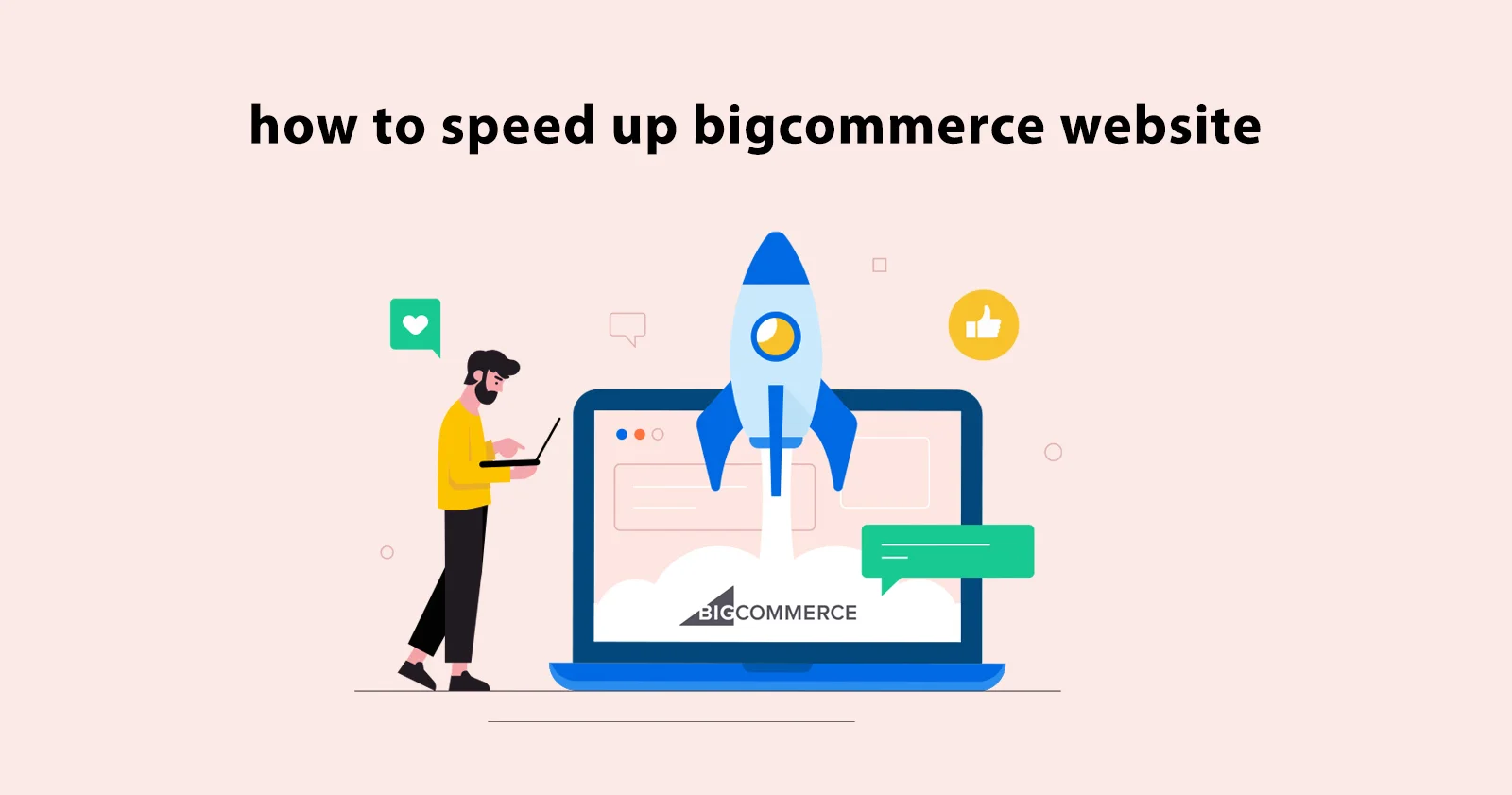Introduction
BigCommerce is one of the best eCommerce platforms for creating your digital brand. BigCommerce provides multiple features that will suit your business niche and consumer preference. By building a site on BigCommerce, you can ensure smooth business performance and speed. It also allows you to customize your site as you want, and you can download the extra apps to get more features in your store.
BigCommerce has a smooth performance, but customization, app integration, or any other things might have affected your site’s loading speed. Speeding up your site is not an option; it is mandatory, as search engines and users don’t give preference to slow-loading sites.
Thus, in this blog, we will learn the top strategies to improve BigCommerce website speed and performance.
Speed Up Your BigCommerce Site Now!
Boost BigCommerce Site SpeedTechniques To Improve BigCommerce Site Speed
Here, we will explain different ways to optimize BigCommerce speed.
Optimize Images:
Make sure your pictures aren’t too big. If they are too large, they will take longer to load. You can use tools like TinyPNG or JPEG-Optimizer to compress them down without making them look bad. This helps your website load faster because it’s not trying to handle huge image files.
Enable Browser Caching:
Imagine if your browser remembered parts of your website so it didn’t have to reload everything every time you visited. That’s what caching does. It stores bits of your site on your computer, so it loads quicker the next time you come back. This reduce the time a site takes to reload its content and enhance vsiitor experience.
Minify CSS and JavaScript files:
Think of CSS and JavaScript files like recipes for your website. Minifying them is like taking out unnecessary words and spaces to make the recipes shorter and easier to read. Online tools can do this automatically; they can sum up the files into a single one, improving loading efficiency.
Make Use of Content Delivery Networks (CDNs):
CDNs or content delivery networks are a way of accessing site content from the server nearest to the user. So when someone visits, they get the version of your store that’s closest to them. This cuts down on the time it takes for your site to reach them and load the content faster.
Implement Lazy Loading:
Lazy loading is like only bringing out the snacks when your friends ask for them. Instead of loading all the pictures and videos at once, lazy loading brings them up only when someone is about to see them. For example, when the user clicks on your site, sees the first section, and scrolls down to the next, the site content will load and appear accordingly to the user’s scrolling. This saves time and makes your website load faster.
Reduce HTTP Requests:
Every time your browser asks the server for something, it sends a request. Too many requests can slow down your site loading. Combining files, using minimum external scripts, and being smart about how you load things can help in BigCommerce speed optimization.
Upgrade your Hosting Plan:
Think of your hosting plan as being like the size of your kitchen. If it’s too small, things get crowded and slow. Upgrading to a better plan gives your website more space to breathe, especially during busy times. Thus upgraded hosting plan increase the efficiency of managing large work, contributing to enhanced performance.
Optimize Database Queries:
Database queries is a big room with numerous small things. If you organize it well, finding things is quick and easy. But if it’s messy, it takes longer. Optimizing your database means cleaning it up and making it more efficient and increase brand revenue.
Use Gzip Compression:
The Gzip method shrinks small text files by around 60% and larger files up to 85%. Compressing and decompressing data happens quickly with Gzip. This compression technique works faster than many other similar methods. Gzip is an effective way to speed up BigCommerce sites without affecting user experience.
Use a Lightweight Theme:
The main benefit of lightweight themes is faster website loading speeds. These themes have smaller, less complex files compared to others. With less data to load, webpages display quickly using lightweight themes, providing a better experience for visitors.
Enhance the Reaction Time of the Server:
When you ask your server for something, like a page on your website, you want it to respond quickly. If it takes too long, you get bored and go somewhere else. Optimizing server response time means making sure your server is fast and efficient, so your site loads quickly for visitors.

Want to read this blog offline?
No worries, download the PDF version
now and enjoy your reading later…
 Download
PDF
Download
PDF
Eliminate Render-Blocking Resources:
Imagine trying to read a book, but someone keeps interrupting you. That’s what render-blocking resources do to your website. They get in the way of loading the page properly. Fixing this means making sure everything loads smoothly, so your site is ready to go when visitors arrive.
Enable Compression for Images and Videos:
Compressing images and videos reduces their size without sacrificing quality. Use Gzip software to shrink the file size of CSS, HTML, and JavaScript files over 150 bytes. Don’t use Gzip for images. Instead, compress images in programs like Photoshop so you can control image quality while making files smaller. This boosts website speed and ensures your site visuals will be fully responsive.
Optimize Mobile Responsiveness:
Your website needs to look good and work well on phones and tablets, too. That’s what mobile responsiveness is all about. Making sure everything adjusts nicely to different screen sizes means people can access your site instantly, irrespective of the device they are using.
Update and Maintenace:
Routine maintenance, like software updates, disk cleanups, and optimization, can greatly improve system performance. Updated software usually has optimized code, bug fixes, and new features that make things faster and work better. Monitoring and optimizing means keeping an eye on things and fixing any problems that pop up. This helps your site stay fast and relevant for visitors.
Conclusion
So, there you have it! This blog has covered some simple yet effective ways to speed up your BigCommerce store and improve user experience. Remember, implementing these techniques can make a big difference in how fast your digital brand loads for visitors. And if you’re looking for an instant boost in speed, be sure to check out the Website Speedy tool for quick and easy improvements.
Website Speedy is a SaaS-based solution to speed-related issues. With it, you can make your site responsive to all devices and have instant loading.
May 17, 2024
Leave a Comment


































